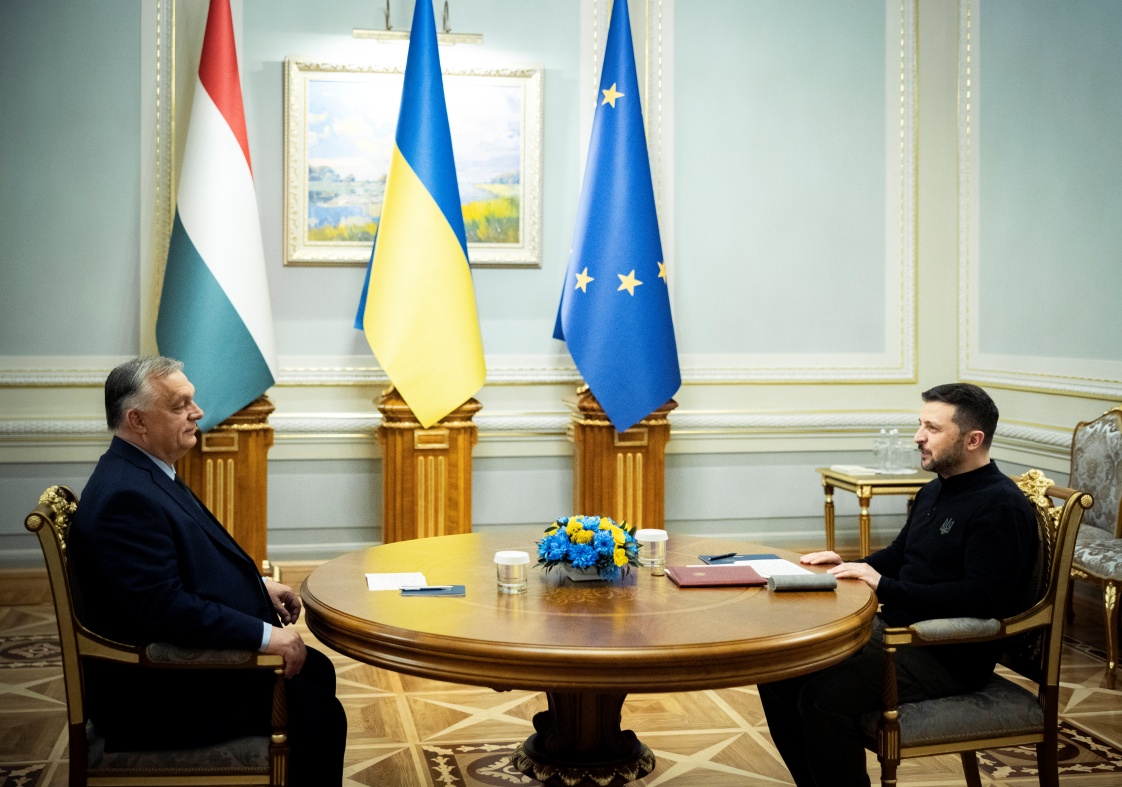
Just over a quarter of Hungarians (28 percent) are dissatisfied with the peace mission.Continue reading
The High Representative of the European Union for Foreign Affairs and Security Policy, Josep Borrell, criticized Foreign Minister Péter Szijjártó’s accusation that the European Union is in favor of war.
Speaking before a meeting of foreign ministers, Josep Borrell addressed the recent comments made by the Hungarian chief diplomat at a UN Security Council meeting, where he suggested that the EU supports war. Mr. Borrell firmly rejected these claims, stating:
this is totally unacceptable. The European Union is not in favor of war. The European Union is not on the side of war.”

Péter Szijjártó (R) and Josep Borrell (L). Photo: Facebook / Szijjártó Péter
He emphasized that the EU supports Ukraine in its defense against aggression and seeks to end the conflict in line with the UN Charter.
The EU High Representative also indicated plans to discuss Prime Minister Viktor Orbán’s recent visits to Moscow and Beijing, suggesting that Hungary’s position on these trips and its overall stance were unacceptable. He highlighted the need for a distinction between the Hungarian government and the country holding the rotating presidency of the EU Council. Mr. Borrell asserted that he, as High Representative, has the authority to convene Foreign Affairs Council meetings and would decide on the planned informal meeting in Budapest after consulting with other ministers. Additionally, he underscored the EU’s commitment to supporting Ukraine, particularly in restoring its damaged electricity infrastructure and enhancing its defense capabilities.
Josep Borrell referenced a recent UN International Court of Justice (ICJ) opinion, which ruled against Israel’s settlement policies in the occupied Palestinian territories, aligning the EU’s position with international law and UN resolutions.
Responding to Borrell’s remarks, Péter Szijjártó expressed strong disapproval of what he perceived as an attempt to undermine Hungary’s EU presidency program, especially during a period of significant crises in Europe.
Minister Szijjártó criticized Mr. Borrell’s actions, noting that he had not received an invitation from him for a foreign affairs meeting coinciding with Hungary’s planned informal meeting in August.
The politician dismissed the EU High Representative’s efforts as childish, comparing them to kindergarten-level antics. “If he had sent me a letter to that effect, I probably would have sent him back a sand shovel, because that is about the kindergarten level of intellectualism,” he said. He affirmed his intention to welcome his Foreign Minister colleagues to the Gymnich meeting, regardless of Mr. Borrell’s plans.
Highlighting the broader issues facing the EU, Péter Szijjártó criticized Josep Borrell’s tenure as High Representative, describing it as one of the most tumultuous periods in European foreign policy.
He expressed hope that Borrell’s imminent departure would halt the EU’s loss of foreign policy influence. Reflecting on his decade-long experience as foreign minister, Mr. Szijjártó remarked that he had consistently believed each successive High Representative could not be worse than the last, only to be proven wrong each time.
He also addressed the potential for increased US involvement in the Paks nuclear power plant expansion, noting that the Russian prime contractor, Rosatom, already works with US, French, and German subcontractors.
He pointed out the irony of ongoing US-Russian trade, particularly in uranium, amidst accusations of feeding the Russian war machine through energy purchases.
Minister Szijjártó further responded to Ukrainian President Volodymyr Zelensky’s criticisms, emphasizing the severe human toll of the conflict in Ukraine and accusing the West of hypocrisy in ignoring human rights violations at the border. He defended Hungary’s peace mission and urged for a swift resolution to prevent further escalation and potential catastrophe in Europe.
Péter Szijjártó’s reaction to Josep Borrell’s criticisms highlights deep divisions within the EU on foreign policy and the handling of the Ukraine conflict. He defended Hungary’s actions and criticized Mr. Borrell’s leadership, while reiterating Hungary’s commitment to peace and stability in the region.
Via MTI; Featured Image: Facebook / United Nations